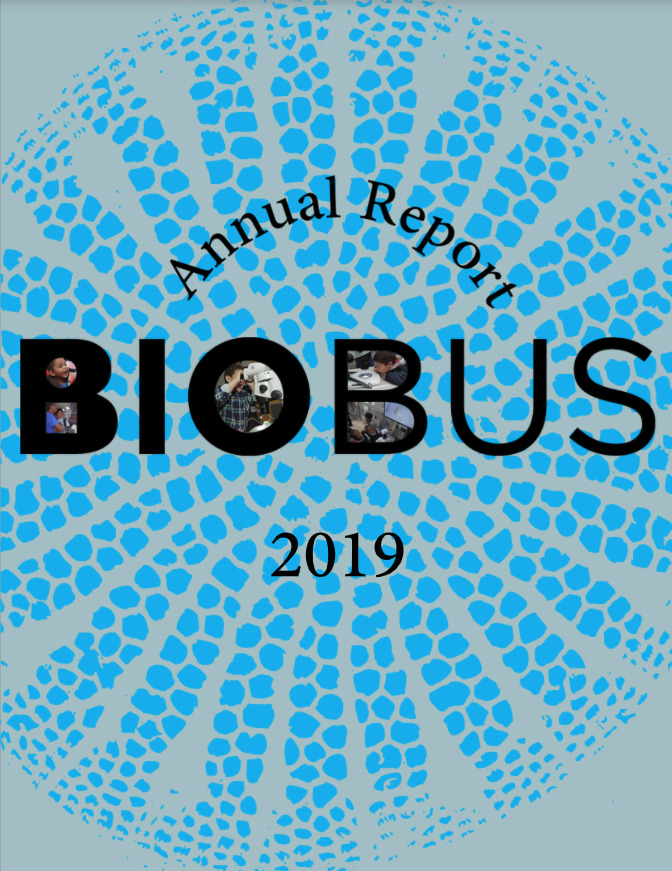BioBus helps K-12 and college students discover, explore, and pursue science. We focus on students excluded from the scientific community due to factors such as race, gender, economic status, and physical access. Through this work, we envision a world where all people have the opportunity to reach their full scientific potential. We’ve reached 400,000 students at more than 1,000 schools and community organizations since 2008, primarily NYC public and charter schools and as far away as New England, California, and even Rwanda, Egypt and Jordan. BioBus students connect with scientists from diverse backgrounds, learn lab and research skills, practice science communication, and take steps to become the next generation of scientists and problem-solvers, making the world better for all of us. Our students access and become part of the scientific community through introductory science labs aboard our mobile labs at their schools; after school, weekend, and summer programs; and year-long internships. We offer programs city-wide with a focus on Harlem, the Bronx, and the Lower East Side.
Learn more in our most recent annual report, and connect with us on Instagram, Facebook, Twitter, LinkedIn, and YouTube. For media inquiries, please refer to our press kit.
Students discover the excitement of hands-on science aboard our Mobile Labs, equipped with $75,000 microscope and staffed by scientists. Parked in front of a school, entire classes of pre-K through twelfth-grade students climb on board for inquiry-based, hands-on, standards-aligned lab sessions.
After 45-minutes aboard a BioBus Mobile Lab, students have more positive attitudes towards science and want to do more. Eight to twelve week BioBus “Explore” programs at existing schools and community centers provide the students opportunities to develop their own research practice. At the same time, BioBus scientists build site staff's capacity to run inquiry-based research programs, as well as help equip sites with hardware and supplies.
We further support our students in becoming tomorrow’s scientific leaders through our “Pursue” paid internships for high school and college students. BioBus interns develop an independent science research project while serving as mentors to many of our younger students through teaching. "Pursue" and some "Explore" programs are located at BioBase Harlem @ Columbia's Zuckerman Institute. At this community lab, students work side-by-side with BioBus scientists and use the same advanced research microscopes found aboard our mobile labs.
BioBus is not a museum. BioBus is not a classroom. BioBus is not a fairground ride. BioBus is not even (always) a bus. BioBus is the research science lab that is in front of your school, at your block party, in front of your neighborhood park, in your summer camp, and at the college you want to attend. From the time you are four years old until college and beyond, BioBus supports your journey to make science part of your life, wherever that journey leads.
- Columbia's Zuckerman Institute
- Variety Boys and Girls Club of Queens
- Lower Eastside Girls Club (LESGC)
- Lower East Side Ecology Center
- NYU Materials Research Science and Engineering Centers (MRSEC)
- Billion Oyster Project
- BraiNY, Greater NYC Chapter of the Society for Neuroscience
- Dana Foundation’s Brain Awareness Week
- Columbia SEBS (Science and Engineers for a Better Society)
- Earth Day NYC
- Girls Prep
- Harlem Week
- HypotheKIDS
- Imagine Science Films
- Lowline Lab
- Maker Faire
- Math For America
- New York Hall of Science (NYSCI)
- New York City School District 1
- NYC Department of Education Citizen Science Program
- NYC Department of Youth and Community Development
- RockEdu (Rockefeller University Science Outreach)
- World Science Festival
BioBus is grateful for the support of generous donors and partners, including:
New York City Council and Bronx, Manhattan, and Queens Borough Presidents
New York State Senate and Assembly
Alfred P. Sloan Foundation
New York City Economic Development Corporation
Flu Lab
Science Sandbox, an Initiative of the Simons Foundation
Richard Lounsbery Foundation
Regeneron
Harry and Jeanette Weinberg Foundation
Cornelia T. Bailey Foundation
New York University
Columbia's Zuckerman Institute
City College of New York STEM Institute
National Grid
Con Edison
West Harlem Development Corporation
Manton Foundation
Marcus Partners
Harvard University
Northeastern University
Zeiss
BioBus also relies on the generosity of many individuals like you. Thank you.
Learn more at donate.biobus.org.
